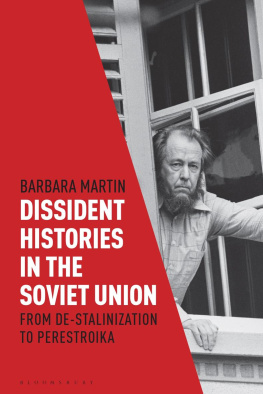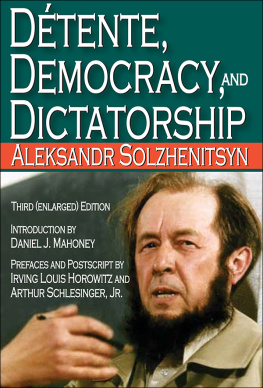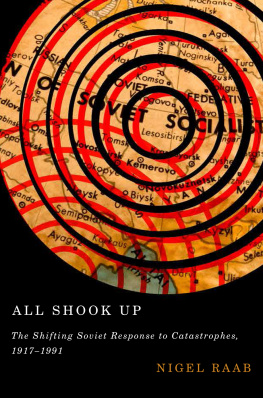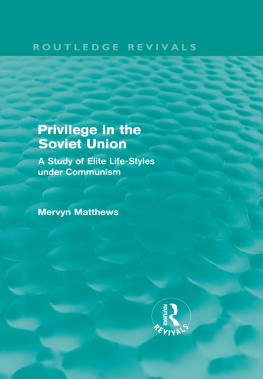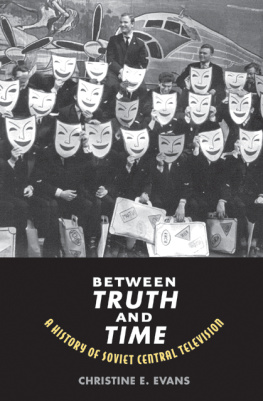Library of Modern Russia
Advisory board
Jeffrey Brooks, Professor at Johns Hopkins University, USA
Michael David-Fox, Professor at Georgetown University, USA
Lucien Frary, Associate Professor at Rider University, USA
James Harris, Senior Lecturer at the University of Leeds, UK
Robert Hornsby, Lecturer at the University of Leeds, UK
Ekaterina Pravilova, Professor of History at Princeton University, USA
Geoffrey Swain, Emeritus Professor of Central and East European Studies at the University of Glasgow, UK
Vera Tolz-Zilitinkevic, Sir William Mather Professor of Russian Studies at the University of Manchester, UK
Vladislav Zubok, Professor of International History at the London School of Economics, UK
Building on Bloomsbury Academics established record of publishing Russian studies titles, the Library of Modern Russia will showcase the work of emerging and established writers who are setting new agendas in the field.
At a time when potentially dangerous misconceptions and misunderstandings about Russia abound, titles in the series will shed fresh light and nuance on Russian history. Volumes will take the idea of Russia in its broadest cultural sense and cover the entirety of the multi-ethnic lands that made up imperial Russia and the Soviet Union. Ranging in chronological scope from the Romanovs to today, the books will:
Re-consider Russias history from a variety of inter-disciplinary perspectives.
Explore Russia in its various international contexts, rather than as exceptional or in isolation.
Examine the complex, divisive and ever-shifting notions of Russia.
Contribute to a deeper understanding of Russias rich social and cultural history.
Critically re-assess the Soviet period and its legacy today.
Interrogate the traditional periodizations of the post-Stalin Soviet Union.
Unearth continuities, or otherwise, among the tsarist, Soviet and post-Soviet periods.
Re-appraise Russias complex relationship with Eastern Europe, both historically and today.
Analyze the politics of history and memory in post-Soviet Russia.
Promote new archival revelations and innovative research methodologies.
Foster a community of scholars and readers devoted to a sharper understanding of the Russian experience, past and present.
Books in the series will join our list in being marketed globally, including at conferences such as the BASEES and ASEEES conventions. Each will be subjected to a rigorous peer-review process and will be published in hardback and, simultaneously, as an e-book. We also anticipate a second release in paperback for the general reader and student markets.
For more information, or to submit a proposal for inclusion in the series, please contact:
Rhodri Mogford, Publisher, History
Rhodri.Mogford@bloomsbury.com
New and forthcoming
Fascism in Manchuria: The Soviet-China Encounter in the 1930s , Susanne Hohler
The Idea of Russia: The Life and Work of Dmitry Likhachev , Vladislav Zubok
The Tsars Armenians: A Minority in Late Imperial Russia , Onur nol
Myth Making in the Soviet Union and Modern Russia: Remembering World War II in Brezhnevs Hero City , Vicky Davis
Building Stalinism: The Moscow Canal and the Creation of Soviet Space , Cynthia Ruder
Russia in the Time of Cholera: Disease and the Environment under Romanovs and Soviets , John Davis
Soviet Americana: A Cultural History of Russian and Ukrainian Americanists , Sergei Zhuk
Stalins Economic Advisors: The Varga Institute and the Making of Soviet Foreign Policy , Kyung Deok Roh
Ideology and the Arts in the Soviet Union: The Establishment of Censorship and Control , Steven Richmond
Nomads and Soviet Rule: Central Asia under Lenin and Stalin , Alun Thomas
The Russian State and the People: Power, Corruption and the Individual in Putins Russia , Geir Hnneland et al . (eds)
The Communist Party in the Russian Civil War: A Political History , Gayle Lonergan
Criminal Subculture in the Gulag: Prisoner Society in the Stalinist Labour Camps , Mark Vincent
Power and Politics in Modern Chechnya: Ramzan Kadyrov and the New Digital Authoritarianism , Karena Avedissian
Russian Pilgrimage to the Holy Land: Piety and Travel from the Middle Ages to the Revolution , Nikolaos Chrissidis
As a francophone historian writing in English about Soviet history, I have striven to reflect in my work the various academic influences and historiographical traditions to which I was exposed. While the initial spark of inspiration came while I was doing an exchange semester at Yale University in 2010, the bilingual and multicultural setting of the Geneva Graduate Institute of International and Development Studies provided me with a stimulating environment to conduct research at the crossroads of the Francophone and Anglo-Saxon academic cultures. Several research stays in Moscow and Bremen made me more familiar with the Russian and German historiography on Soviet dissent and with research communities in these countries.
In the process of conducting research over and writing this book, I benefited from the support and kind assistance of many scholars. My deepest gratitude goes to Andre Liebich, who not only provided me with patient, committed, and yet flexible guidance, but also shared with me his deep knowledge of the Soviet and post-Soviet world and taught me to look at the past with a critical and dispassionate eye. Davide Rodogno and Kathleen Smith have also provided me with invaluable comments and advice. As I presented my research in Europe, Russia, and the United States, I made connections and received valuable feedback from colleagues, which contributed greatly to my reflection. I am grateful, among others, to Allen Lynch, Ann Komaromi, Stephen Cohen, Benjamin Nathans, Peter Reddaway, Gabriel Superfin, Vsevolod Sergeev, Clemens Gnther, Roman Khandozhko, and my Bremen colleagues. Finally, I thank the anonymous peer reviewers and my former editor Thomas Stottor for their constructive critique of my manuscript in the final stages of publication.
A Western research on Soviet history requires more than a whiff of Russian fragrance, and my stays in Moscow between 2012 and 2017 and contacts with local historians played a crucial role in forming my perceptions about the past. In particular, I greatly benefited from my repeated contacts with the research and information center of Memorial. Konstantin Morozov kindly provided me with the necessary contacts and introduction to Memorials staff and helped organize my first six-month stay in Moscow. Besides the archivists Aleksei Makarov and Tatiana Bakhmina and the librarian Boris Belenkin, I would like to thank most warmly Gennadii Kuzovkin, head of Memorials Program on the History of Soviet Dissent, for his invaluable help. These close contacts with Memorial also intensified with my work over the dissident historical collection Pamiat , which evolved into a separate book project in collaboration with Anton Sveshnikov.

